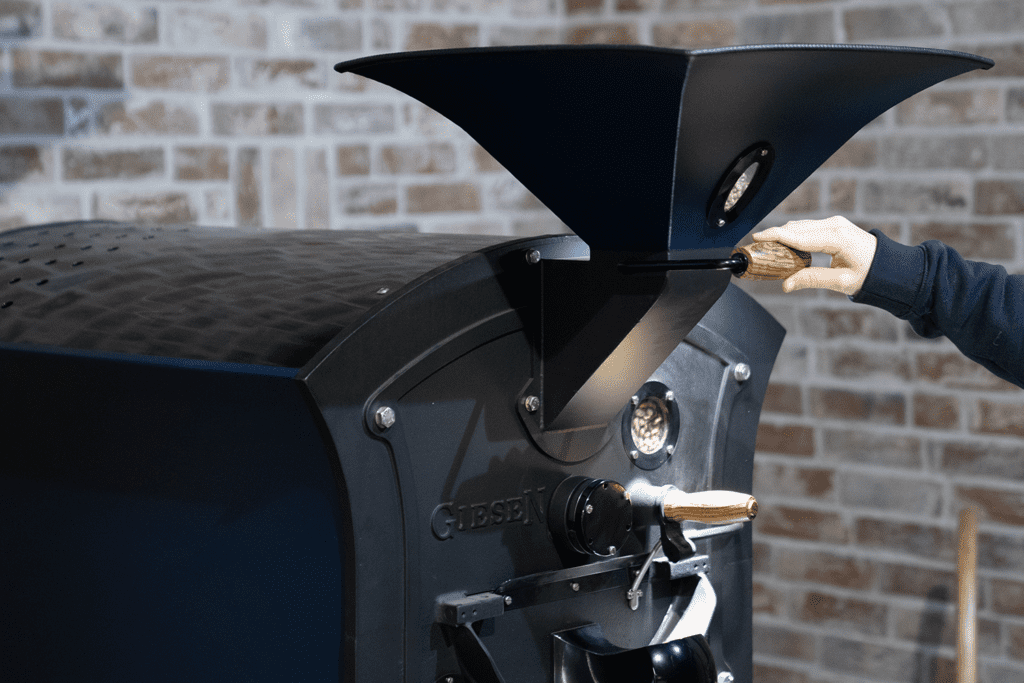A long day of roasting coffee usually leaves me physically tired and mentally utterly satisfied. I actually enjoy these extended roasting sessions, where it’s all about the coffee, the roasting machine and the operator. The batches of green coffee beans are measured and lined up, like musicians in an impressive orchestra play. The roaster is preheated for at least 30 minutes, facilitating the best possible heat distribution to the coffee. The machine gradually wakes up from a long night’s rest and I feel the soothing warmth emanating from the cast iron face plate. Yeah, my Giesen W6A is waking up!
Bean journey
I inspect the roll of today’s day of roasting. The same time I’m glancing over the numerous batches that are lined up. I cannot stop my mind from wandering off to the myriad of remote regions where today’s beans originate from. Colombia Nevada Santa Marta, Ecuador Lojas, Sulawesi Toraja, Ethiopia Bench Maji and Brazil Espiritu Santo. Thousands of hands have harvested, sorted and handled these beans. And now the fate and future of this coffee rests in my roasting machine and my own hands.
Roasting on a W6A
First of all, I launch the roasting control software. Together with inspecting the roasting curves from the previous session. After that I check the post-roast flavor notes we identified in our cupping room. I tell myself to highlight more sweetness of the Colombian and less nutty notes of the Brazil today. Maybe we can also deepen the florals of the Ethiopian? I choose a higher than usual start temperature for the Sulawesi Toraja and off we go; this first batch of the day sets today’s roasting caravan in motion. Almost five minutes into the roast, I increase the air pressure setting of my Giesen W6, and gradually start decreasing the heat input; from 70 to 60 to 40 and finally 10%. The rate of rise shows a gradual decline and I recognize a rhytmical melody in the samba-like sound of the tumbling beans gently hitting the radiating face plate.
Zen
Just before the ten minutes mark, I notice the subtle temperature acceleration of my bean curve and I smell the spicy-perfumy fragrance from the trier. All my senses are on alert while inspecting the mottled-hazelnut color of the beans. Less than sixty seconds later this first batch of Sulawesi Toraja beans discharges like a slow motion waterfall into the cooler and I feel surrounded by their impressive aroma’s. My Giesen W6A happily initiates the next load and today’s roasting Zen continues.
You like to see more of Willem Boot? Watch our webinars where he teaches you how to become a roaster pro, and peforms some live roasting.





